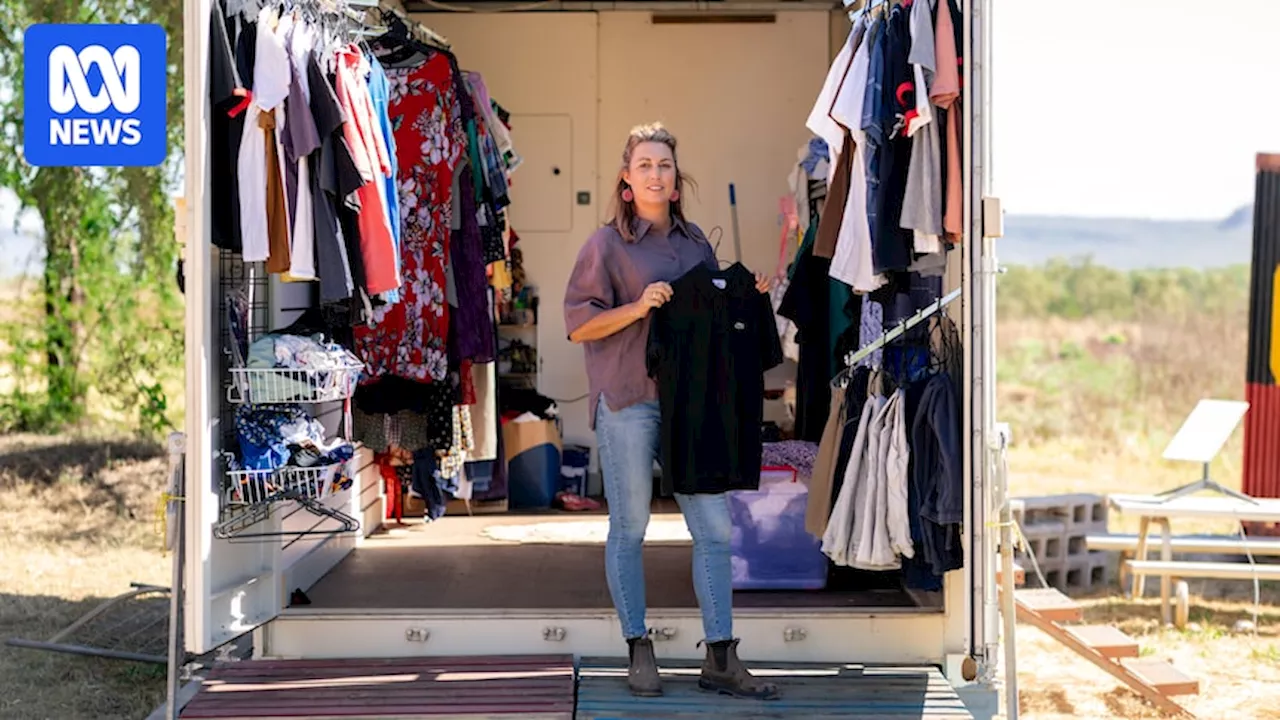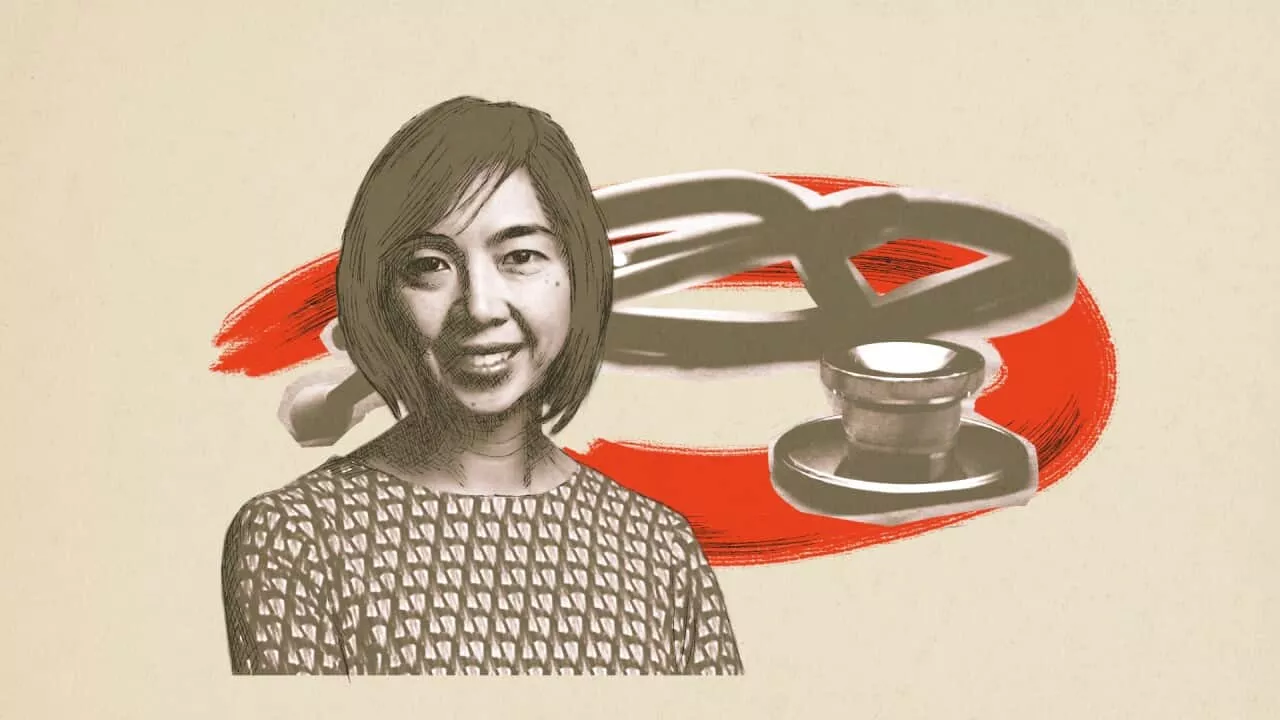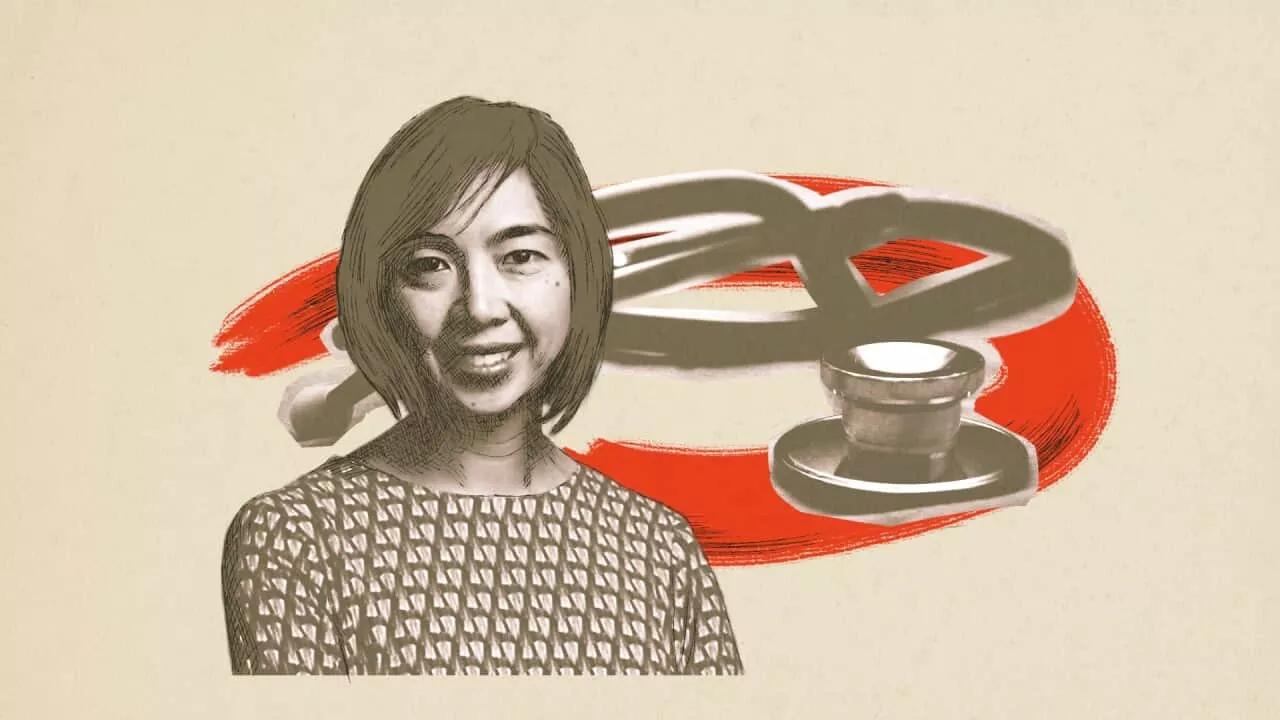Women are sharing experiences of stigma and discrimination when it comes to flexible working arrangements to manage chronic pain conditions.
This is despite the fact at least 3 million Australians are estimated to be suffering with chronic pain, amid a rise in remote and hybrid work arrangements following the COVID pandemic. In this bonus episode of 'Hysterical' we speak to women who have encountered this workplace stigma, and the changes they wish to see across Australia's workplaces.
Data from the Australian Bureau of Statistics shows about 40 per cent of people worked from home between September 2020 and June 2021; and just under 37 per cent of people in 2023. Jasmine felt defeated by the response she encountered, after contributing to the organisation for years, typically being rewarded for her hard work by receiving promotions and new opportunities across the government agency.
Researchers from Melbourne University and Western Sydney are working on a new report examining the relationship between working from home and evolving family and social relations, and wellbeing - which Jasmine was interviewed for. After interviewing 8 of the 12 women who reported working from home to manage their chronic pain, Ms Crovara says experiences of discrimination and stigma emerged.
At least 3.2 million Australians are living with chronic pain, according to 2018 estimates from a Deloitte and Painaustralia report into the costs of pain in Australia.Chronic Pain Australia's 2024 report, which included those aged 18 years and older, found 3.6 million Australians live with chronic pain.
This aligns with evidence of health bias from Victoria's women's pain inquiry, as well as the federal End Gender Bias survey, which we explore in episode 2 of 'Hysterical'. Ms Hodson says because it's also difficult to receive a classification of disability for many chronic pain conditions via the National Disability Insurance Scheme, workers fail to receive adequate legal protections and flexible work arrangements.
"I did have a manager who would get annoyed at me pretty regularly that I couldn't get into the office before 9.30. In the end, she was so annoyed about it... What I did was I went through Google Maps and I printed out what times I could be at such and such; and that kind thing of what my commute actually looks like. And at that point, she was happier for me to do work from home and not get to the office before that time.
Lily says the HR team is also predominantly staffed by women, many of whom work from home and are mothers to small children."By not considering people with chronic pain - well, not actively doing that. But by having a rigid, we expect nine to five; and 40 hours ; you're really reducing the pool of people who you can consider as employees in the first place, and you're losing out on talent. The business case for diversity and inclusion is pretty clear.
The spokesperson says the Fair Work Commission is also considering a ‘working from home’ term in the Clerks Award, which covers employees who mainly carry out clerical and administrative work and their employers in the private sector. Ms Crovara says at its heart, the reform she is calling for is about a fairer and more equitable approach to flexible working arrangements for women with chronic pain.
Australia Latest News, Australia Headlines
Similar News:You can also read news stories similar to this one that we have collected from other news sources.
 Empowering remote Indigenous women wins Tanya Egerton AgriFutures Rural Women's Award 2024Northern Territory's Tanya Egerton founded the Remote Opshop Project after responding to a call for help from a group of Indigenous women.
Empowering remote Indigenous women wins Tanya Egerton AgriFutures Rural Women's Award 2024Northern Territory's Tanya Egerton founded the Remote Opshop Project after responding to a call for help from a group of Indigenous women.
Read more »
 Hysterical: Some people experience barriers and bias seeking health care, but what about those delivering it?Women and trans people clearly experience ongoing barriers and bias in our health system, but what about those on the very frontline of care? Healthcare professionals fight tirelessly to provide quality care to all who need it, but women and trans health workers are reporting bias,...
Hysterical: Some people experience barriers and bias seeking health care, but what about those delivering it?Women and trans people clearly experience ongoing barriers and bias in our health system, but what about those on the very frontline of care? Healthcare professionals fight tirelessly to provide quality care to all who need it, but women and trans health workers are reporting bias,...
Read more »
 Hysterical: Some people experience barriers and bias seeking health care, but what about those delivering it?Women and trans people clearly experience ongoing barriers and bias in our health system, but what about those on the very frontline of care? Healthcare professionals fight tirelessly to provide quality care to all who need it, but women and trans health workers are reporting bias,...
Hysterical: Some people experience barriers and bias seeking health care, but what about those delivering it?Women and trans people clearly experience ongoing barriers and bias in our health system, but what about those on the very frontline of care? Healthcare professionals fight tirelessly to provide quality care to all who need it, but women and trans health workers are reporting bias,...
Read more »
 Hysterical: whose bodies do we study, and is our treatment falling behind?The male body is still treated as the default in medicine, despite progress around women's health issues. This prevailing bias in medical studies and clinical trials can have dire consequences for women and trans people who are vulnerable to misdiagnosis and unknown side effects from medication.
Hysterical: whose bodies do we study, and is our treatment falling behind?The male body is still treated as the default in medicine, despite progress around women's health issues. This prevailing bias in medical studies and clinical trials can have dire consequences for women and trans people who are vulnerable to misdiagnosis and unknown side effects from medication.
Read more »
 CFMEU investigation: how construction failures on building sites push up costs for buildersUnion officials with unchecked power on construction sites force builders to cover costs of insolvent subcontractors, which in turn pushes up costs for home buyers.
CFMEU investigation: how construction failures on building sites push up costs for buildersUnion officials with unchecked power on construction sites force builders to cover costs of insolvent subcontractors, which in turn pushes up costs for home buyers.
Read more »
 ‘Denial’ of China a stumbling block as Pacific leaders push back at Australian police training planVanuatu prime minister Charlot Salwai says initiative to train officers must not ‘suit the geostrategic denial security postures’ of big countries
‘Denial’ of China a stumbling block as Pacific leaders push back at Australian police training planVanuatu prime minister Charlot Salwai says initiative to train officers must not ‘suit the geostrategic denial security postures’ of big countries
Read more »
